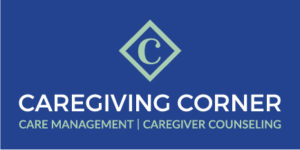Aging Well Charlotte
Helpful tips for family caregivers
August/September 2014
As we wrap up our series about balance, we end where it all begins: the feet! In this issue we also look at the legal responsibilities and practical demands of hiring help yourself. And we address the difficult situation of caring for a parent who was negligent or abusive in your childhood.
Foot care for older adults
Our feet are complex tools of mobility. Each foot has 26 bones and 33 joints, plus numerous muscles and nerves to orchestrate their movement. They carry us for decades. But with age, joints stiffen, arches flatten, and natural padding thins out.
Because of these changes, one in three older adults experience foot problems, such as
- bunions: bony growths at the base of the big toe;
- calluses and corns: thick dead skin on the toes and heels;
- hammertoes: toes that curl up or fold under;
- toenail changes: thick, discolored, or ingrown nails;
- heel pain: bone spurs or an inflamed ligament in the arch.
And if your relative has a chronic disease, he or she may also have
- loss of sensation (common with diabetes and heart disease);
- foot deformities from arthritis or gout;
- foot lesions that he or she cannot see or feel.
To help your loved one maintain foot comfort,
- take time to inspect his or her feet regularly. Begin by soaking the feet in warm water softened with Epsom salts. Afterward, dry the feet thoroughly. Then massage in skin cream or lotion. Check for ingrown nails, cuts, hot spots, redness, or swelling. Clip the toe nails straight across.
- ensure socks and shoes fit well. Make sure socks don’t bunch up in shoes. Are socks so tight they leave dents in the calf? Have shoe size checked by a podiatrist or in the store. Try new shoes on at the end of the day, when feet are apt to be swollen. There should be a half-inch of space between the longest toe and the end of the shoe’s toe box. Don’t assume new shoes will stretch out. Keep cushy, nonslippery shoes for wearing around the house.
- seek professional support. Have a podiatrist or other trained healthcare professional evaluate your relative’s feet, especially if there is pain. Treatment may be as simple as a new pair of shoes.
Return to top
Hiring help yourself
Hiring someone to help with caregiving can be a great relief. If you do it without an agency, however, it makes you an employer. Are you ready for the responsibilities?
Verify knowledge, experience, and work habits. Your vulnerable loved one will be dependent on this employee. Ask for verification of training or classes taken. Talk to prior employers. Do not accept written references in lieu of a conversation.
Conduct a background check/drug screening. A formal background check can tell you if a person has a history of elder abuse. Or run-ins with the law. You will also want to arrange for an initial drug test.
Think about timesheets. Your loved one may not be able to track an attendant’s hours. You will need a time-keeping system. Perhaps the employee can call you from your relative’s phone when arriving and before leaving. Then you can be the one to record the hours.
Be prepared for quick fill ins. Unless you can personally drop everything and fill in on a moment’s notice, you’ll need a back-up plan for when the care attendant is sick, has car trouble, etc.
Protect yourself. Does your relative’s car insurance cover situations when an employee is driving? Similarly, find out what your home insurance covers if a household employee is injured on the job. You may be legally required to buy workers’ compensation insurance.
Deduct social security and other taxes. As an employer, you will be responsible for paying social security and Medicare taxes. You may also be obligated to pay state and federal unemployment and disability taxes. Check with an accountant to learn your specific tax liability.
Get a signed contract. At a minimum, the contract should outline duties, wages, hours/day, unacceptable behavior, and grounds for termination. Protect yourself by seeking an attorney’s advice.
Return to top
When you feel more resentment than love
 If you are caring for a parent or parents who abused or neglected you in childhood, your situation is especially challenging. You may feel on an emotional tightrope, trying to keep your balance, with many conflicting feelings. For example,
If you are caring for a parent or parents who abused or neglected you in childhood, your situation is especially challenging. You may feel on an emotional tightrope, trying to keep your balance, with many conflicting feelings. For example,
- guilt, that you “should” take care of your parent, no matter how he or she treated you
- resentment, that their illness forces you to maintain close contact
- hope of finally receiving your parent’s love and approval
Research indicates that you are put at much greater risk of depression by these stressors than are those who did not experience parental abuse or neglect. Protect yourself with a strong safety net:
- Counseling. Resolve old issues, especially if you never had an apology from your parent. Learn skills for coping with difficult emotions as they arise. Identify your current strengths and life goals.
- Personal limits. Clarify what you will and won’t tolerate so you can maintain healthy boundaries.
- Coping strategies. Guard against common, unhealthy stress outlets, such as overeating, drinking, smoking, taking sleeping pills, and using other drugs. Or even going numb to your life. Instead, engage in something that is dependably rewarding, such as exercise, a singing group, or a caregiver support group.
- Self-protection. Develop ways to help your parent that keep in-person contact to a level that is manageable for you. For example, an in-home care agency can perform daily care tasks. You can guide what is done, yet maintain a buffer between you and your parent(s). Or hire an Aging Life Care™ Manager to oversee what’s needed, take your parent to the doctor, coordinate care, and make recommendations as health conditions change.
- An exit plan. It is wise to have a clear “Plan B” in case the close personal interactions of caregiving prove to be too much. For instance, a legal guardian can be appointed to take over in your stead. Talk to an Aging Life Care Manager or an elderlaw attorney about the range of options.



